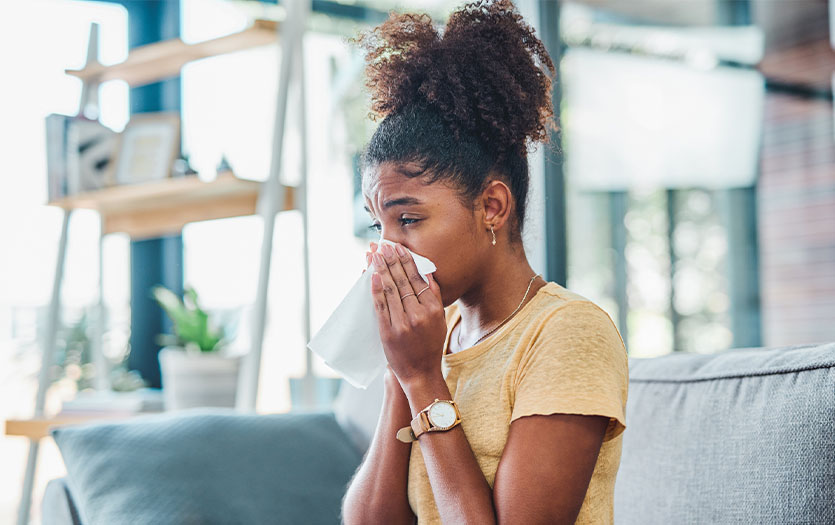
Allergies occur when your body's defense system (immune system) overreacts to certain substances. In these cases, the immune system treats a harmless substance as if it were a harmful germ or virus. Many things can cause this to happen.
Understanding seasonal allergies
Your allergies are seasonal if you have symptoms just at certain times of the year. In that case, you are probably allergic to pollens from certain trees, grasses or weeds.
Allergies can be mild or severe. Over-the-counter allergy medicines, such as nasal sprays, eye drops or pills, may help with some symptoms. Read and follow all instructions on the label.
Your doctor may suggest that you have tests to help find the cause of your allergies. When you know what things trigger your symptoms, you can avoid them. This can prevent allergy symptoms and other health problems.
In some cases, immunotherapy might help. For this treatment, you get shots or use pills that have a small amount of certain allergens in them. Your body "gets used to" the allergen, so you react less to it over time. This kind of treatment may help prevent or reduce some allergy symptoms.
How can you prevent seasonal allergies?
Seasonal allergies are often caused by being exposed to pollen. When you can, reduce your exposure by:
- Keeping your house and car windows closed. Use an air conditioner to help filter out allergens.
- Limiting the time you spend outside when pollen counts are high. Your local weather may report pollen counts. They are also available online.
- Limiting your mowing tasks. Wear a pollen mask or dust mask if you need to mow the lawn.
- Rinsing your eyes with cool water or saline eyedrops to remove clinging pollen after you come indoors. You can also use saline (saltwater) nasal washes. This can help keep your nasal passages open and wash out mucus and allergens.
- Taking a shower and changing your clothes after you work or play outside.
A convenient care option
With the Virtual Walk-in Clinic, you can see a Parkview provider from your smartphone, tablet or computer and receive the same level of care as an in-person visit at a walk-in clinic. Our providers are available to treat and diagnose non-emergency medical issues, and if necessary, prescriptions are sent right to your pharmacy of choice. Virtual Walk-in Clinic video visits are open to anyone nationwide, even if you don’t currently have a Parkview provider.
To get started, log in to your MyChart account and select Virtual Walk-In Clinic from the menu. For the best visit experience, use the free MyChart mobile app, downloadable for Android or Apple products.
If you need further evaluation or guidance or have concerns about the cause of your symptoms, you may need to see an expert at PPG – Allergy, Asthma & Immunology. You can meet the team and learn more about the conditions they treat here.
Copyrighted material adapted with permission from Healthwise, Incorporated. This information does not replace the advice of a doctor.



